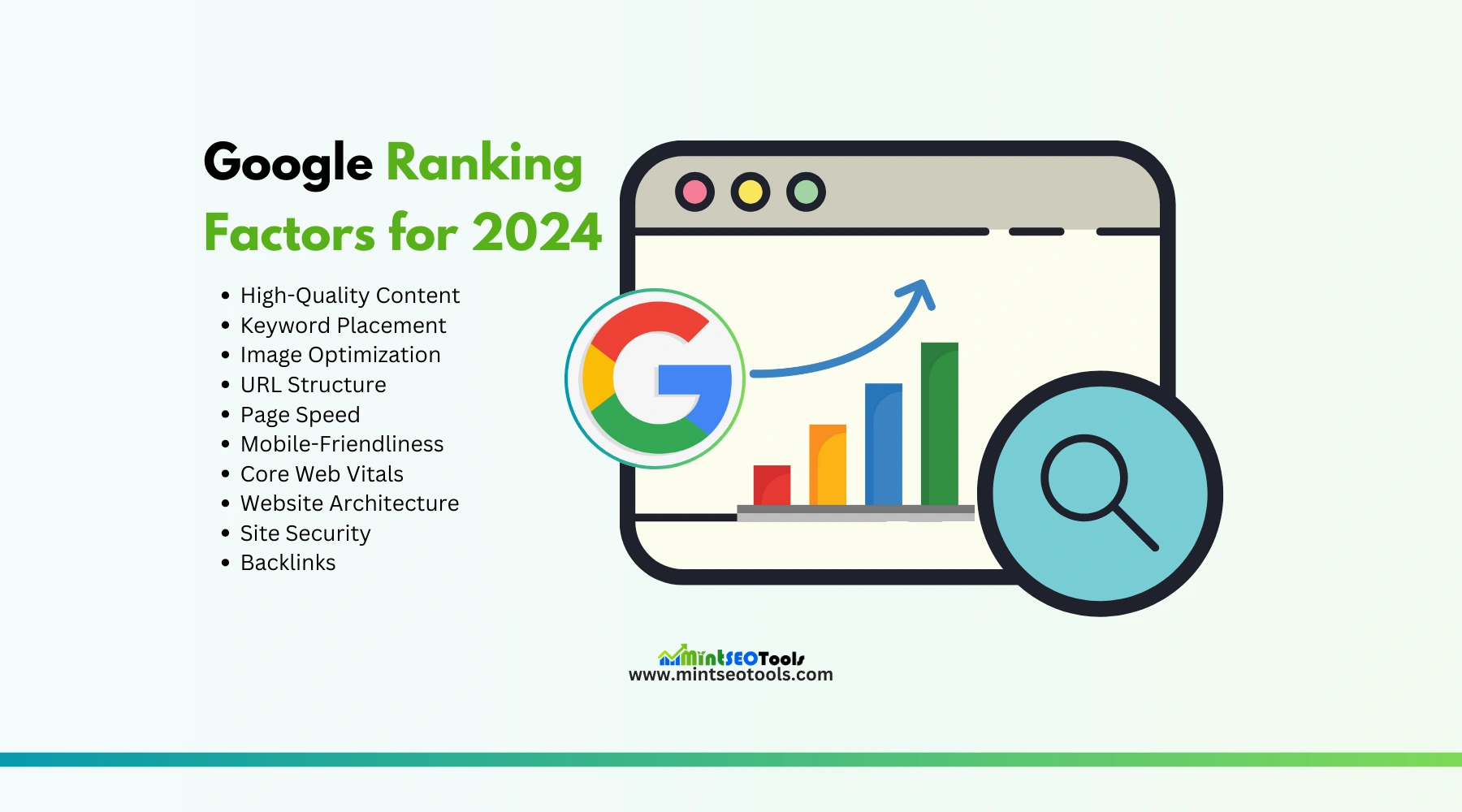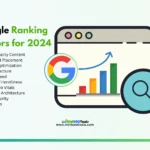If you want to understand how to make your website better performing and more visible, check out Google’s top ranking factors for 2024 with its best strategies.
When people need ideas, products, or services, they don’t look up listings in the Yellow Pages or call their family and friends. Rather, they head straight to Google. Because of this, most users frequently select the first few selections that appear.
This is the reason SEO or search engine optimization has become an important element of success in the online world. Search Engine Optimization (SEO) means adjusting your website to the ranking factors of Google to make sure that its contents are visible and can attract a lot of visitors. But what are these ranking criteria and how can a person enhance their site following the same? Let’s go ahead and examine.
Understanding Google Ranking Factors
The various elements that Google uses to decide which pages should show up at the top of a specific search are known as ranking factors. These factors determine how highly or poorly your webpage will rank among those that contain your keywords.
Search engine optimization, or SEO, is the process of fine-tuning a website to take up the greatest space on search engine result pages. As you can see, these variables are constantly shifting, but among the key elements that have been consistent throughout time are experience (user experience), competence (various types of material), authority (who has the most followers), and trustworthiness.
Types of Google Ranking Factors
Before going into the top ten factors that impact search rankings, let’s have a look at the various categories:
- On-Page Factors: These relate to the content on your website, including keywords, images, and other visible elements.
- Off-Page Factors: These involve aspects outside your website, like backlinks from other sites.
- Technical Factors: These measure how easily search engines can crawl, index, and display your content.
- Local Factors: These encompass all three types but with a focus on geographic location, reviews, and local reputation.
This is not the only factor influencing how well your website or blog will perform in search engine result pages (SERPs). The combination of on-page, off-page, and technical optimizations leads to better rankings and increased traffic.
The Top Google Ranking Factors
Time for an in-depth look at the fundamental elements of high search engine ratings. As experts say, publishing consistently high-quality content is crucial for 2024 along with optimization of meta title tags, backlinks creation, niche authority development, and user engagement to remain relevant as well as trusting.
Let’s see a more detailed analysis of these key ranking factors:
1- High-Quality, Relevant Content
There is no doubt that the primary factor that affects the search engine ranking of a site is the quality of its content. Quality content is:
- Trustworthy: Accurate, in-depth, and free of spammy links.
- Readable: Well-organized, conversational, and naturally incorporates keywords.
- Fresh: Continuously updated to remain relevant over time.
- Aligned with Intent: Matches what users are searching for when they use your target keywords.
2- Strategic Keyword Placement
After deciding which target keywords to concentrate on, the next step is to strategically place them across the content of the website. Here are a few instances:
- Title Tag: The title that appears in search results.
- H1 Title: The main title on your page.
- H2 Headings: At least two per page.
- URL: Keep it concise and include the keyword.
- Meta Description: Summarizes the page and encourages clicks.
3- Image Optimization
Optimizing images is therefore essential since search results are becoming more visual. Your images should be:
- Tagged with Alt Text: Descriptive and includes the keyword.
- Compressed and Resized: To enhance page speed without sacrificing quality.
- Valuable: Use images that add value, such as charts or screenshots, rather than generic stock photos.
- Properly Named: Include the keyword in the file name, with dashes instead of spaces.
4- Niche Expertise
Google rewards websites that provide uniformly excellent content, therefore niche specialization must be considered to maintain their ranking. One method of demonstrating specialization in a specific topic is using the hub and spoke strategy, which consists of a primary hub page with broad information and specialized sub-pages on various parts of it.
5- Page Speed
Fast-loading pages benefits users and reduce bounce rates, therefore page speed is an important ranking criterion. GTmetrix and Google PageSpeed Insights are two tools that can help you test and improve the speed of your website.
6- Mobile-Friendliness
The current version of Google indexes its data using the mobile-first concept, which prioritizes the evaluation of a website’s version designed for handheld devices over that intended for stationary desktops. Make sure your site is mobile-friendly so that you do not face any negative ranking consequences.
7- Core Web Vitals
Core web vitals, which were introduced in 2021, are included in the page experience update by Google. The following are measured:
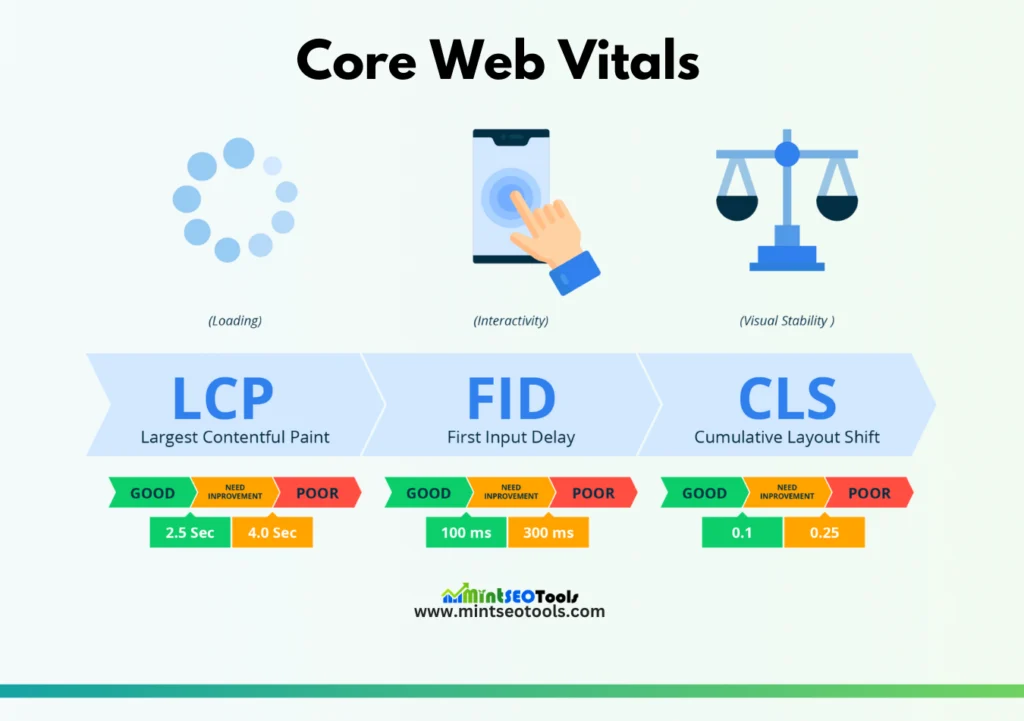
- LCP (Largest Contentful Paint): How long it takes for the main content to load.
- FID (First Input Delay): The time it takes for the page to respond to the first interaction.
- CLS (Cumulative Layout Shift): The stability of the page layout as it loads.
8- Website Architecture
Search engines can crawl and index your pages more easily if a well-organized website is structured with an effective internal linking plan. From the homepage, this means every page on your site should be within three clicks away.
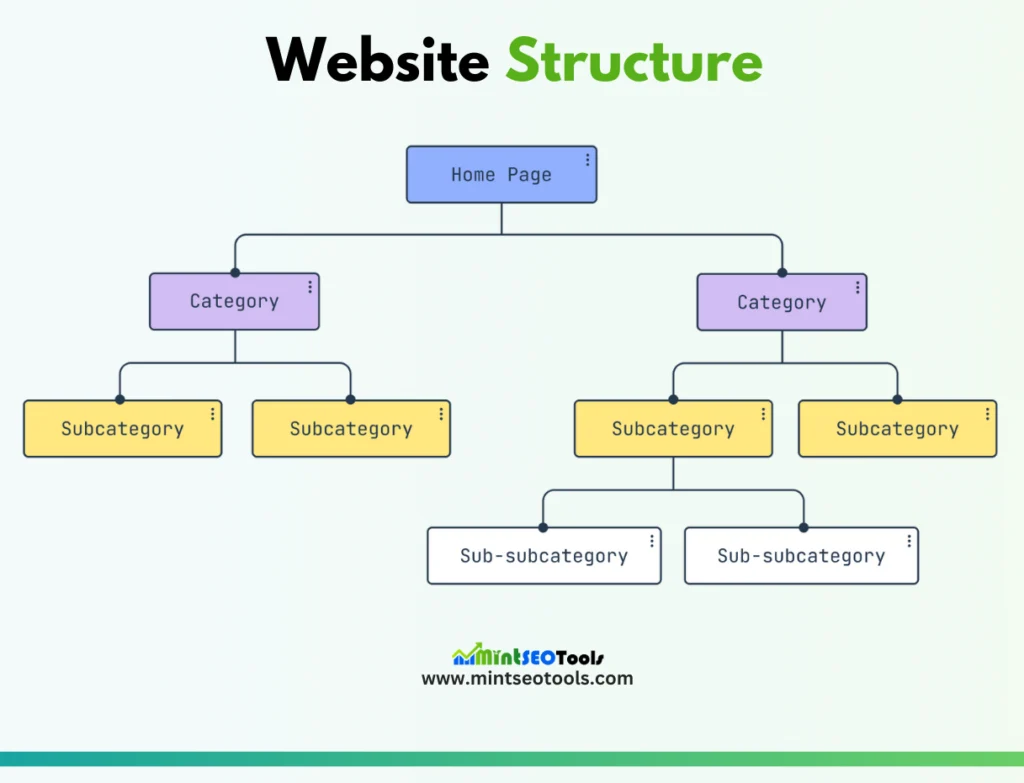
9- Site Security
For security reasons, Google prefers secure sites. Therefore, you should make sure that your site is secure by acquiring an SSL certificate which encrypts the data enabling a safe browser experience.
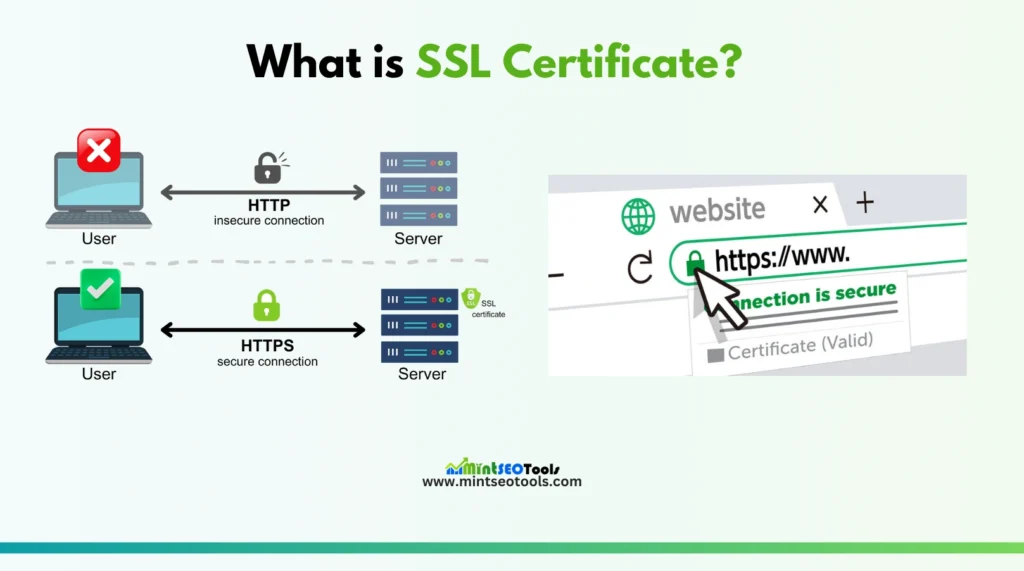
10- Backlinks
Google analyzes backlinks to determine the quality of your content. To get backlinks from credible sources, generate engaging content that is shared across several platforms and use outreach, guest blogging, and other strategies.
Recap: Top 10 Google Ranking Factors
To enhance the visibility of your website, here are the ten most important ranking factors:
- High-Quality Content
- Keyword Placement
- Image Optimization
- URL Structure
- Page Speed
- Mobile-Friendliness
- Core Web Vitals
- Website Architecture
- Site Security
- Backlinks
Keep in mind that search engine optimization is not an overnight procedure. When you regularly optimize your site with your audience in mind, you can expect to see incremental improvements in search engine rankings and organic traffic.
Conclusion
Getting a high rank in Google is vital to getting organic traffic to your website, but this is not a one-time process. For your website to succeed in the long run, you need to focus on ranking factors such as quality content, strategic placement of keywords, mobile friendliness, and developing powerful backlinks.
Remember that SEO is all about user experience which resonates with the target audience and at the same time satisfies the ever-changing algorithms of Google. keep on formulating and optimizing for an increase in visibility and better rankings over time.
Give me the latest news!
Looking for SEO tips? Subscribe to our newsletter to receive updates on the content you care about.

